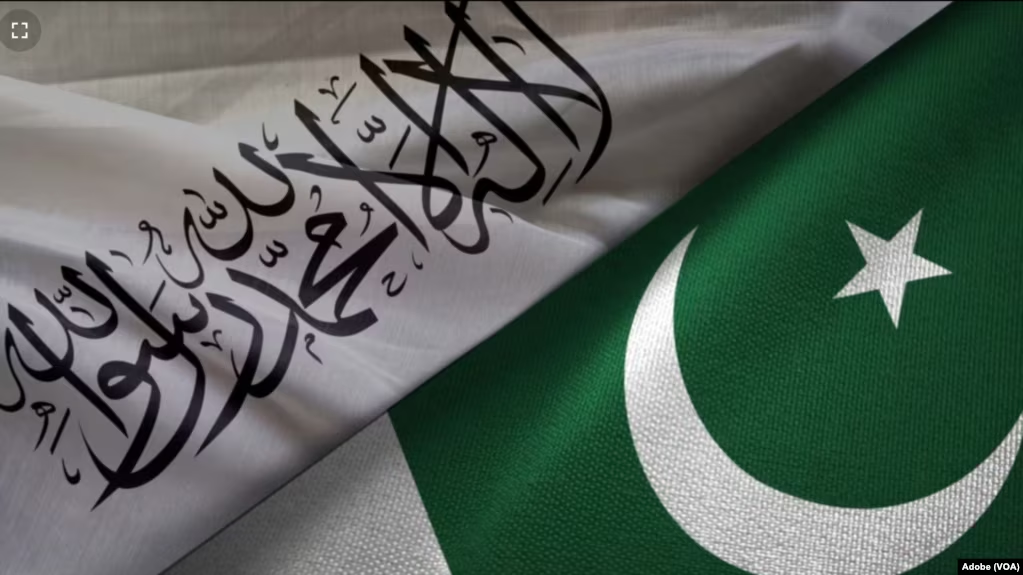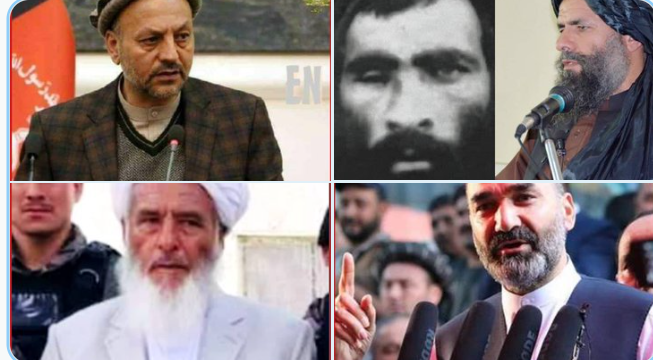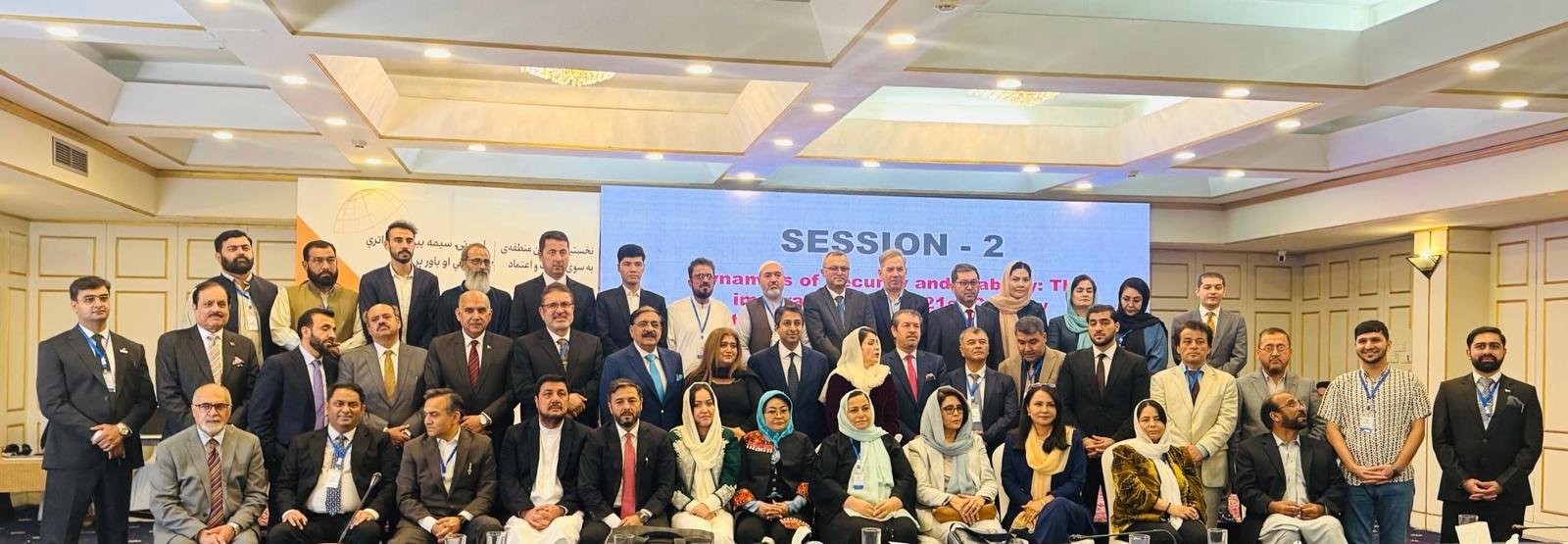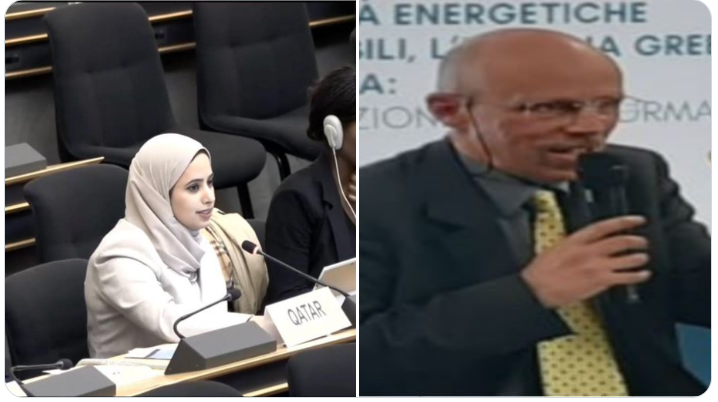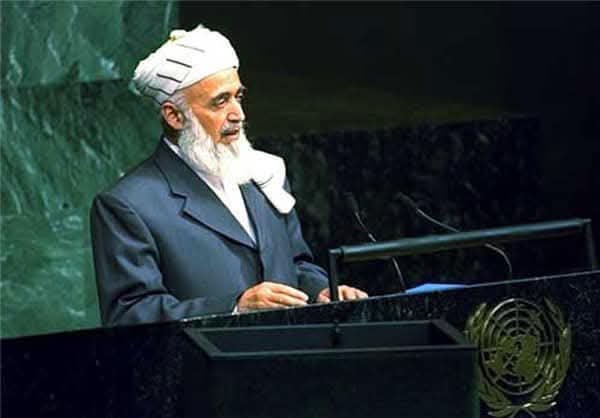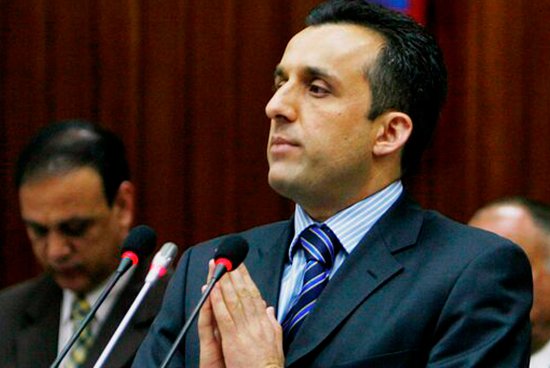The Tuesday Interview | ‘US betrayed us, Afghanistan under Taliban worse than what India would’ve been under Aurangzeb in 2025’
In an interview with DH’s Anirban Bhaumik from an undisclosed location, Saleh says that Pakistan overestimated its relevance and value in Taliban-ruled Afghanistan. He also says India can balance principle and pragmatism in its engagement with Taliban-ruled Afghanistan.
Amrullah Saleh has been fighting the Taliban for almost a quarter of a century now. He was born in Panjshir in northeastern Afghanistan in 1972 and, after fighting the communist government of the country during the 1992-1996 civil war, he joined Ahmed Shah Massoud’s Northern Alliance.
As the head of the Northern Alliance’s liaison office in Dushanbe, Saleh played a key role in 1997 in arranging New Delhi’s support to Massoud’s fight against the Taliban, which had taken control of much of Afghanistan by September 1996. After the fall of the Taliban in 2001, he served as the intelligence chief, acting interior minister, and vice president of the successive governments of Afghanistan.
As President Ashraf Ghani fled Kabul, his government collapsed and the Taliban returned to power and reestablished the Islamic Emirate of Afghanistan in August 2021. Saleh took over as the head of the exiled government of the Islamic Republic of Afghanistan. In an interview with DH’s Anirban Bhaumik from an undisclosed location, Saleh says that Pakistan overestimated its relevance and value in Taliban-ruled Afghanistan. He also says India can balance principle and pragmatism in its engagement with Taliban-ruled Afghanistan.
It has been five years since the United States government, led by President Donald Trump, clinched the February 29, 2020, ’Doha Accord’ with the Taliban. A year and a half later, the Taliban regained control of Afghanistan. Looking back, do you think that the US let down the people of Afghanistan with the ’Doha Accord’?
The Trump Administration of late moved to suspend the US refugee program, putting at risk hundreds of Afghans who had helped the US in the war against the Taliban. Do Afghans feel betrayed by the successive US government?
Amrullah Saleh: The United States signed the Doha Agreement with the Taliban on February 29, 2020, a deal we view as a calculated coup d’état that enabled the Taliban’s takeover of Afghanistan. Whether the US continued evacuating at risk Afghans matters little. It neither offsets the betrayal nor qualifies as generosity. The real betrayal occurred when the US cut off critical supplies and contracts to Afghan forces, sidelined their government, and negotiated directly with the Taliban. The agreement, with its four sections and extensive secret annexures, prioritized Western, particularly American, interests over Afghan stability. Evacuations, however large, cannot undo this. Rather than helping Afghans hold their ground, the US pulled some of them out, a meaningless gesture, when about 20 million women were left trapped in oppression.
Interviewer: Three-and-a-half years have passed since the Taliban returned to power in Afghanistan. Can we request you to share with our readers an overview of the situation in Afghanistan?
Amrullah Saleh: I am in touch with our people both directly and also through our organized struggle and resistance, and we continue to fight the Taliban. Also, social media has made it far easier to understand the situation and connect with various parts of the country. The Taliban policies stand against the very nature of humans. Simple. They base their policies on Quranic interpretation, but this interpretation is rejected and contradicted by the Muslim world. The catastrophe in Afghanistan is rooted in geopolitics and also in what the Taliban have learned in the madrasas in Pakistan. Geopolitically, the Western powers made a deal with militant Islam and handed over Afghanistan to it. To narrow it down, the unique type of religious militancy Pakistan harbored for decades is now in control of Afghanistan. They have mixed it with isolationist tribal traditions and are calling it Islam. Although life for the entire nation of Afghanistan has been turned into hell, the situation of the major cities, northern provinces, and the capital region is the worst. These regions have no common ground with the Taliban. To put it metaphorically, it is like Aurangzeb being reinstated in India in 2025. Doesn’t that sound like a nightmare? The situation is worse than even that in Afghanistan.
Interviewer: Why do you think the Islamic Republic of Afghanistan crumbled so quickly after the withdrawal of the US-led International Security Assistance Force, making way for the Taliban? Why couldn’t a strong foundation for a modern and progressive democratic nation be built in the 20 years after the Taliban was ousted from power in 2001? Where did the successive governments in Kabul and the international community, particularly the United States, falter?
Amrullah Saleh: The Islamic Republic of Afghanistan didn’t crumble, as commonly believed, contrary to the oversimplified narratives pushed by legacy media. Starting in 2014, the US began issuing Special Immigration Visas (SIVs) to thousands of key personnel linked to the International Security Assistance Force (ISAF), Resolute Support, or US contractors, signaling their imminent withdrawal. This program fractured the Afghan National Defense and Security Forces into US-backed and non-US-backed factions, despite our protests. Take the Khost Protection Force (KPF), for example. It was a CIA-trained, well-equipped unit. When they left without warning, leaving us scrambling to fill the void. To undermine the Afghan government, USAID poured billions into fragmenting the political class, deliberately eroding their negotiating power. A united Afghan republic could have changed the outcome. Programs like the rule of law, freedom of expression, gender equality, democracy, and governance were rolled out independently, beyond the Afghan government’s oversight, often designed to weaken the state itself. Some NGOs even outmuscled state institutions. An audit of USAID’s records would reveal how this aid undercut Afghan society’s indigenous roots, sowing division. They not only spent billions to fracture us but also treated the Taliban like a government-in-waiting. The Doha process was a calculated move to ease the Taliban’s path to power. In the northern provinces, the US refused to support an offensive by the Afghan National Defense and Security Force (ANDSF) against the Taliban. When we deployed commandos without waiting for US support, critical intelligence was withheld. Thirty-eight soldiers of the ANDSF were killed in one operation, watched by the US drones overhead. The drones, under President Joe Biden’s Administration, offered no help—a betrayal through and through.
Interviewer: The women were the worst victims of the Taliban rule in Afghanistan two decades ago. They continue to be so even after the Taliban returned to power in 2021. They recently issued new diktats banning women from speaking, singing, or reading in public or even reciting the Quran in front of other women. Why do you think the Taliban are so averse to allowing the women of Afghanistan to educate or empower themselves or simply to live freely? Does this come only from a strict interpretation of Sharia or from an apprehension that empowering women may eventually end the fear that helps them stay in power?
Amrullah Saleh: The Taliban has imposed its own version of Sharia in Afghanistan, leaving the Muslim world stunned. It isn’t true Sharia, but a distortion born from Pakistani madrasas crafted for militancy. It has nothing to do with Islam. It’s rather an insult to the faith. They use oppression as a tool for control. While the subjugation of women makes headlines, the entire Afghan society is suffocating under this ethno-clerical dictatorship. Facing an economic void and unable to provide livelihoods, the Taliban spin fantasies to manage expectations in very odd ways. That’s their game.
Interviewer: Over 54% of the population in Afghanistan lived below the poverty line in 2016, 15 years after the Taliban was dislodged from power in 2001. Why couldn’t the successive governments in Kabul, the US, and the rest of the international community make a turnaround and make any significant progress in lifting people out of poverty?
Amrullah Saleh: Various factors contribute to poverty in Afghanistan. It was exacerbated by the war. During the 20 years of the republic, the state was weak, and the business community exploited this weakness and plundered the economy. The business community during the republic involved big companies from the donor states. So, from each dollar that came in our name, 80 cents ended up back in the capitals of the donor states. Our ambassador to the US, Sayed Tayeb Jawad, once told late US Senator John McCain: “Mr. Senator, 80 cents from each dollar you give us comes back to the US.” The senator replied: “What is wrong with that?” So, the dollar figures you see spent in Afghanistan were spent in our name, not necessarily all in Afghanistan. The utility of Western charity for the development of poor nations is a matter of debate.
Interviewer: How do you view the move by the United States to freeze the assets of Da Afghanistan Bank?
Amrullah Saleh: The US freezing Afghanistan’s assets post-withdrawal is a wise decision the best since leaving. That money belongs to Afghans, not the Taliban, who’d have used it to strengthen their ethno-clerical dictatorship, instead of spending for the welfare of the people. It should stay frozen until a government chosen by Afghans takes over. Providing aid under any title or name while the Taliban rules help them consolidate their dictatorship, with only scraps reaching citizens after their militias are fed. The international aid must come with strict conditions. The fact that any country claiming to assist Afghans must accept is that whatever they send would not reach the people without strict conditions.
Interviewer: The Afghan National Army could not stop the advance of the Taliban. But the resistance against the Taliban started in the Panjshir Valley immediately after the fall of Kabul. Can you please provide an update about the resistance to the Taliban? Is it still limited to the Panjshir Valley? Has it spread beyond the Panjshir Valley? How do you see the prospects of the resistance? Can the resistance against the Taliban succeed with the support of the international community which appears to be increasingly inward-looking?
Amrullah Saleh: The Afghan National Defense and Security Forces (ANDSF) didn’t fall swiftly. From 2015, they led operations with US/NATO support, including ISR (intelligence, surveillance, reconnaissance), though key enablers remained beyond their grasp. In 2020, that aid ceased, and the West’s political engagement with the Taliban sent a misleading and damaging signal inside and outside Afghanistan. Representing 54% of the global economy, this triggered a political earthquake and crumbled older narratives. After 2021, I stayed inside the country and didn’t flee, founding the resistance despite US/NATO-tied media asserting the Taliban had changed—a claim that crushed morale and hindered recruitment. From an encircled Panjshir Valley, we defied them for over a month, setting the stage for wider resistance. We registered a cause with our blood, and that is very key. Afghans reject the Taliban’s claim of legitimacy. Our fight is local yet tied to a geopolitical web with regional and international roles playing an important role in shaping the resistance after 2021. Now, the success of our struggle should not be just measured by how many Taliban are killed. The fact that the Taliban had to deploy 75% of its militia in areas witnessing resistance against them should also be taken into account.
Interviewer: President Donald Trump has recently asked the Taliban to return the weapons and other military hardware the US forces left behind when withdrawing from Afghanistan in August 2021. Did the weapons left behind by the US forces help the Taliban counter the resistance against its rule? Is it true that the Taliban sold some of the weapons left by the US? Do you see any possibility of the weapons being sold by the Taliban falling into the hands of the terrorist organizations based in Pakistan?
Amrullah Saleh: We have evidence that nearly 100,000 weapons the US/NATO forces left in Afghanistan have been missing since the Taliban takeover. We know their serial numbers and the locations from which they went missing. The word ’missing’ is strange. It can mean stolen, sold, or simply sent to secret locations for secret purposes. As far as US President Donald Trump’s demand for the retrieval of those weapons is concerned, at this moment, I do not know if it is one of those headline-making slogans or if it will be backed by real actions. The Taliban are seen as a secret proxy of the intelligence agencies of the West, particularly the US. The Doha process was overseen by the CIA step by step, inch by inch, and minute by minute. So why is there this discrepancy between the president and the CIA in Langley? One can have too many speculations. Let me elaborate on one of those speculations. I used to watch Bollywood movies in my teen years. In more than one movie, the hero has to tame a wild horse, including in ’Betaab’. The wild horse, once ridden, then becomes a domesticated beast. For President Trump, it is not the quantity of the weapons they want to take back that matters. It can be just a token. But he wants to publicly ride the Taliban once to show that they are under control, and then the US will start to tap them, hug them, and feed them more than before.
Interviewer: Pakistan helped the Taliban sustain itself for two decades and then helped it regain control of Afghanistan. But the relations between the Taliban and Pakistan have turned sour over the past few years, particularly over Pakistan’s move to drive out the refugees from Afghanistan and Pakistan’s allegation about the Taliban extending support to Tehreek-i-Taliban Pakistan to carry out terrorist attacks apart from allowing other anti-Pakistani forces to use the territory of Afghanistan. How do you view the trajectory of the Taliban’s relations with Pakistan? Pakistani ISI chief’s meeting with Tajikistan President triggered many speculations. Can a future anti-Taliban front include Pakistan or at least accept support from Pakistan?
Amrullah Saleh: No leadership in Afghanistan. No, if you take true leadership out of this equation, then the tragedy in Afghanistan doesn’t bother Islamabad at all. It is what the Pakistan Army dreamed of for over 40 years. Once again, the State of Pakistan is pursuing a narrow and overly selfish policy. They do not care about the plight of millions who have left the country due to the Taliban, who came to power with direct support from the ISI and the army. It is now revealed that the ISI facilitated treatment for over 50,000 Taliban wounded in action in Pakistani hospitals every year. Pakistan’s policy for the Islamic Republic of Afghanistan was to overthrow the system and install a turban-wearing, Pakistani-educated, and madrasa-trained Pashtun Mullah into power. They achieved it. So, what has gone wrong? Pakistan has a massive crisis of identity, and the Pashtuns are demanding more autonomy, more say, more power, and even independence. The existence of the TTP gives Pakistan an excuse to treat all of them as terrorists without addressing the roots of their demands. Of course, TTP is what we hear a lot about. But do you remember the October 12, 2024, Grand Jirga of Pashtuns? Probably not. Almost all important and major Pashtun politicians and political groups came together and offered to assist in the re-stabilization of the Khyber Pakhtunkhwa province. Islamabad ignored them. Even labelled them as spoilers. They offered to eliminate the TTP too. But accepting their legitimate demands didn’t fit into the scheme of the Pakistan Army. As far as the return of the Taliban is concerned, Pakistan underestimated Qatar and its role in collaboration with the US. Pakistan underestimated the shrewdness of the CIA and thought that, like in the 1980s and 1990s, the West would rely on it for outreach to Afghanistan. Pakistan overestimated its own relevance and value in post-Republic Afghanistan. It is now a dilemma. We are only hearing one thing from Islamabad: that the TTP is a problem. Yes, but it is not our problem. We have, to this date, not heard anything that resonates with our interests or appeals to our core interests. TTP indeed is a problem, but not for us. We didn’t create the TTP. It was one of the too many fanatic outfits created by the ISI or as a result of ISI’s policies which has now become a problem. The TTP initially came into existence to provide a platform for Pakistani volunteers fighting for the victory of the Taliban. Our land isn’t under the occupation of TTP. Our land is under the occupation of the Quetta Shura, the Haqqani Network, and others, which were supported by the ISI and the Pakistani army for over 25 years. We have not heard any explanation about the history from Islamabad. We have a wide range of interests, and I am not sure any Afghan will rush to assist Islamabad as a contract detective or a contract killer just against the TTP. We want to know what Islamabad is thinking about the Afghan Taliban. That aspect is vague now. What type of Afghan system does Islamabad want to see in Kabul? Has Rawalpindi learned anything from history? Is Islamabad ready to apologize to the Afghan people for supporting the Taliban? You can’t have it all by grandstanding and acting as if nothing has happened.
Interviewer: India played an important role in building infrastructure in Afghanistan before the Taliban returned to power. But New Delhi’s response to the Taliban’s return to power in 2021 has been different from what it did in a similar situation in 1996. India sent back a technical team to run its embassy in the capital of Afghanistan a few months after withdrawing its envoy and other officials from Kabul. India then over the past few years started engagements with the Taliban regime in Afghanistan. What is your view on India’s foreign policy on engaging the Taliban?
Amrullah Saleh: It is a bitter fact and a harsh reality that we no longer inhabit an era shaped by values and ideologies—even India. India is actively working to mitigate the risks of terrorism, perhaps by engaging with the Taliban or subtly infiltrating their structure. Delhi faces a delicate choice, treading a fine line between upholding values and embracing pure pragmatism. We believe India has the potential to embody both roles—to serve as a source of inspiration and a torchbearer of values while wielding pragmatic power with skill. Yet, India has noticeably scaled back its ties with Afghans who advocate for a pluralistic system within their country. The Taliban, by their very design, cannot maximize security in the region. On the contrary, they are engineered to destabilize. It is only a matter of time before this truth unfolds.
Link: https://www.deccanherald.com/world/the-tuesday-interview-us-betrayed-us-afghanistan-under-taliban-worse-than-what-india-wouldve-been-under-aurangzeb-in-2025-3461071



